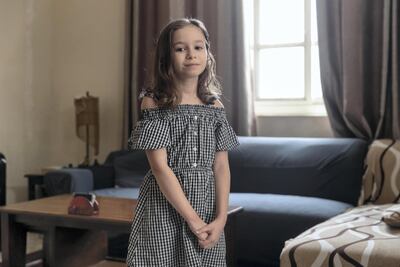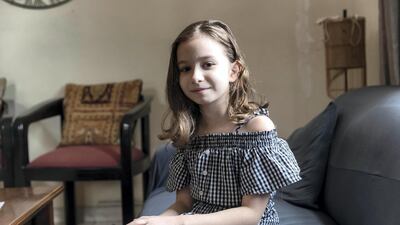Healthy tips to remember
Here, Dr Mohamed El Abiary, paediatric consultant at Al Zahra Hospital Dubai, shares some advice for parents whose children are fasting during the holy month of Ramadan:
Gradual fasting and golden points - For children under the age of 10, follow a step-by-step approach to fasting and don't push them beyond their limits. Start with a few hours fasting a day and increase it to a half fast and full fast when the child is ready. Every individual's ability varies as per the age and personal readiness. You could introduce a points system that awards the child and offers them encouragement when they make progress with the amount of hours they fast
Why fast? - Explain to your child why they are fasting. By shedding light on the importance of abstaining from food and drink, children may feel more encouraged to give it there all during the observance period. It is also a good opportunity to teach children about controlling urges, doing good for others and instilling healthy food habits
Sleep and suhoor - A child needs adequate sleep every night - at least eight hours. Make sure to set a routine early bedtime so he/she has sufficient time to wake up for suhoor, which is an essential meal at the beginning of the day
Good diet - Nutritious food is crucial to ensuring a healthy Ramadan for children. They must refrain from eating too much junk food as well as canned goods and snacks and drinks high in sugar. Foods that are rich in nutrients, vitamins and proteins, like fruits, fresh meats and vegetables, make for a good balanced diet
As Muslims worldwide readied themselves for the start of Ramadan last month, Feryal Elbanna told her parents she was eager to observe her first fast.
The eight-year-old said listening to her older cousins’ share stories of abstaining from food and drink during previous holy months had piqued her interest.
Despite being in the middle of a health pandemic, she said the new home-learning norm created less distraction than the normal school day, which in turn offered a good opportunity to “challenge” herself.
One week into her first fasting experience, Ms Elbanna, who lives in Ajman, said the “hunger pains” had been tough, but she’ was “old enough” to push through it.
"I think if I was at school I would find it more difficult as I would be distracted by friends and playtime, but right now, it's fine," she told The National.
My cousins are doing it too, so I like that I am joining them in the journey. I feel more responsible
“I did a half fast for the first two days but now I want to keep going with the full fast.
“I do school work and help my parents set the table for Iftar to keep my mind off the feeling of starvation.
“I do check the time on the clock a lot though, the day seems longer.”
Fasting through their first full Ramadan is a significant milestone in a Muslim child’s life.
For those who choose to abstain from food and drink for the entire 29 or 30 days, the month ahead can be daunting.
This year, the fasting hours in the UAE amount to about 14 hours between each dawn and dusk.
And as an early riser, Ms Elbanna said she was "awake for most of that", meaning a full day’s fast can last up to 12 hours.
Islam specifies that when a child reaches puberty, things like praying five times a day and fasting during Ramadan become obligatory, to the best of each child’s ability.
Yet many children choose to observe their full or half fast earlier than this.
“I feel proud that I am doing it, like I am achieving something,” said the 3rd grade pupil.
"My cousins are doing it too, so I like that I am joining them in the journey. I feel more responsible.
“My sister, who is five, often asks my mum why I am not eating and she tells her that I am challenging myself.
“I still don’t know the full reason why we have to fast, but I know it is something we do as Muslims because I see my mother doing it each year.
“As I get older I will understand it more.”
Ms Elbanna said she sometimes wakes up for suhoor, but most mornings she does not.
Each evening begins with breaking her fast with some fresh juice. After setting the table for Iftar, she usually tucks into some of her favourite foods, including sambosa, a fried pastry with spiced vegetables and meat, as well as chicken and “lots of rice”.
Her mother, Salam, who is Palestinian-Jordanian, said she did not want to force the meaning of fasting or the importance of prayer on her daughter.
“Right now, she is just eight, so I want her to be curious about it in her own way,” she said.
"When I was younger we were made to understand the injunctions of Islam, but I think if she asks her own questions, she will absorb the meaning in a better way.
“I do not want to force anything on her, it all has to be of her own choosing.”
Healthy tips to remember
Here, Dr Mohamed El Abiary, paediatric consultant at Al Zahra Hospital Dubai, shares some advice for parents whose children are fasting during the holy month of Ramadan:
Gradual fasting and golden points - For children under the age of 10, follow a step-by-step approach to fasting and don't push them beyond their limits. Start with a few hours fasting a day and increase it to a half fast and full fast when the child is ready. Every individual's ability varies as per the age and personal readiness. You could introduce a points system that awards the child and offers them encouragement when they make progress with the amount of hours they fast
Why fast? - Explain to your child why they are fasting. By shedding light on the importance of abstaining from food and drink, children may feel more encouraged to give it there all during the observance period. It is also a good opportunity to teach children about controlling urges, doing good for others and instilling healthy food habits
Sleep and suhoor - A child needs adequate sleep every night - at least eight hours. Make sure to set a routine early bedtime so he/she has sufficient time to wake up for suhoor, which is an essential meal at the beginning of the day
Good diet - Nutritious food is crucial to ensuring a healthy Ramadan for children. They must refrain from eating too much junk food as well as canned goods and snacks and drinks high in sugar. Foods that are rich in nutrients, vitamins and proteins, like fruits, fresh meats and vegetables, make for a good balanced diet



